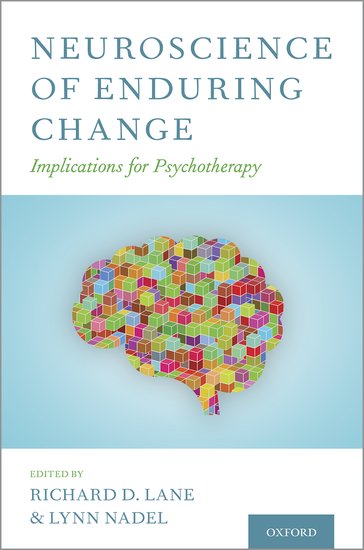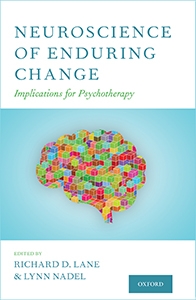Reviews 
This book is a real tour de force of reuniting empirical evidence and theoretical models embedded in clinical wisdom, leading to inspiring perspectives of how to study change in psychotherapy in the future. Across all these topics, the editors went to considerable lengths to ensure that basic science chapters established linkages with clinical practices, and, conversely, that chapters focusing on psychotherapy practice accurately referenced basic science concepts. Clients seek psychotherapy because of either lack of skills to cope with a specifically challenging life situation, or in order to deepen their understanding of themselves. Their current lives are shaped, or constrained, by the experiences they have had in the past and, oftentimes unwillingly, they tend to repeat, in the present, their old ways of responding and interacting. While researchers are still unclear what the neuronal underpinning of this updating process is, it is assumed that the hippocampus and the amygdala are implicated to form a corrective emotional experience in the here and now which undoes, and contradicts, the predictions of the old memory of how, for a given individual, interaction with other humans may work. This is a convincing and multifaceted hypothesis of change which could take the lead in the next generation of psychotherapy research on the processes of change. It may therefore be used by therapists from a variety of backgrounds, including psychodynamic therapy (chapter by Levenson et al.), coherence therapy (chapter by Ecker) or specific therapies such as the unified protocol or schematherapy (chapter by Goldman et al.). In particular, clinicians may find the proposed model of change useful in clinical contexts such as when therapy has stagnated or when client’s clinical conditions deteriorates. This book can be understood as a call for taking recurrence in psychiatric disorders seriously. If psychotherapy researchers want to be even more useful to the daily practice of psychotherapists, and their clients’ experience, a focus on how memory updating can lead to lasting, years-long, maybe once-and-for-all, change, is needed. It is an inspiring call for researchers to examine the open questions outlined in the final chapter – a glimpse of what the future of psychotherapy research may look like – and a hopeful message to psychotherapists and their clients that lasting change may be within their reach. (Read the full review)
— Ueli Kramer, PhD President, European Society for Psychotherapy Research (EU-SPR) Department of Psychiatry, University of Lausanne (Switzerland) and Department of Psychology, University of Windsor (Canada)
Understanding the therapy change process has fascinated clinicians and researchers for decades. This volume provides an important contribution to this understanding by linking basic research on neurology and emotion to clinical practice. Linking these findings to the contributions of differing approaches to therapy, the authors address a most important question, namely ‘What can be an agreed-upon core or consensus in psychotherapy?’
— Marvin R. Goldfried, PhD, Distinguished Professor, Psychology Department, Stony Brook University
Psychotherapy is often about change, and typically happens with little thought about the underlying neural underpinnings; Neuroscience of Enduring Change fills this important void. In this marvelous collection, Lane and Nadel have gathered together some of the finest minds to offer their perspectives on memory and emotion, from both a basic science and a clinical point of view. In these high-quality chapters, readers are treated to an inspirational approach for thinking about how and why people change for the better during mental health treatment.
— Elizabeth F. Loftus, PhD, Distinguished Professor, University of California, Irvine
I strongly recommend this book that presents a reformulation of biopsychosocial change in psychotherapy. It describes a suitably complex computational neuro-circuitries perspective as well as an exciting effort at psychotherapy integration. The authors synthesize concepts about how techniques from various schools all affect memory activation and reconsolidating, a form of plasticity.
— Mardi Horowitz, MD, Distinguished Professor of Psychiatry, UCSF Weil Neurosciences Center
Psychotherapy is a learning process, a way of changing mind and behavior by forming new memories. With contributions by basic scientists and clinicians, the Neuroscience of Enduring Change builds on the science of memory to offer valuable new insights into how the effects of therapy might be made more persistent.
— Joseph Ledoux, PhD, Henry and Lucy Moses Professor of Science, Neural Science and Psychiatry, NYU
 Interviews
Interviews
- Awakenings: April 2021
- Fire It Up with CJ: Feb 2021
- Groks' Science Show: Enduring Change Feb 2021
- Kim Pagano Show: Feb 2021

